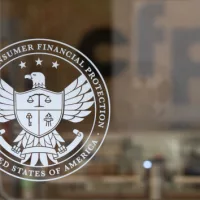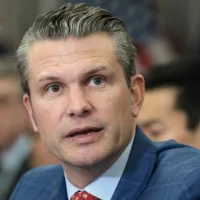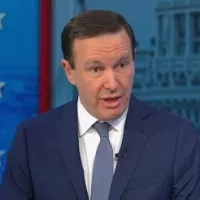
(WASHINGTON) — The Consumer Financial Protection Bureau, an independent agency formed in the wake of the 2008 financial crisis to safeguard Americans against unfair business practices, is the newest target of Elon Musk and the Trump administration.
The agency is at a virtual standstill after Musk’s Department of Government Efficiency and Russell Vought, the leader of the White House budget office and now acting director of the CFPB, took control.
They and congressional Republicans have accused the agency of overreach and not being politically accountable.
Internal emails obtained by ABC News show Vought advised the agency’s headquarters in Washington will be closed all week and told employees, “Please do not perform any work tasks.”
In a post on X Saturday night, Vought said the CFPB’s funding, which comes through the Federal Reserve, is “now being turned off.”
Democratic Sen. Elizabeth Warren, who helped create the CFBP, posted a video on Monday “ringing the alarm bell” on what the impact will be if its gutted.
Warren highlighted what she said the agency does for average Americans, including finding fraud in payment apps, stepping in if a bank tries to repossess your car and working to cut credit card fees. She argued that only Congress can dismantle the CFPB, and that Trump and Musk do not have the authority to do so unilaterally.
“So, why are these two guys trying to gut the CFPB? It’s not rocket science: Trump campaigned on helping working people, but now that he’s in charge, this is the payoff to the rich guys who invested in his campaign and who want to cheat families — and not have anybody around to stop them. Yeah, it’s another scam,” she said.
Congressional Democrats and others protested outside the agency on Monday afternoon.
Here is what to know about the agency and its work.
What is the Consumer Financial Protection Bureau?
The CFPB is an independent agency established by Congress after the 2008 financial crisis under the Dodd-Frank Wall Street Reform and Consumer Protection Act. It’s a consumer watchdog aimed at protecting American households from unfair and deceptive practices across the financial services industry.
Its oversight applies to everything from mortgages to credit cards to bank fees to student loans. By law, the CFPB has the rare ability to issue new rules — and impose fines against companies who break them.
Since its establishment in 2011, the CFPB says it has clawed back $20.7 billion for American consumers.
Unlike many federal agencies that are beholden to appropriations battles in Congress, the CFPB’s funding comes through the Federal Reserve system. This has made it a frequent target by Republicans and industry groups. Last summer, the Supreme Court ruled the CFPB’s source of funding is constitutional.
Key actions under the Biden administration
Under the Biden administration, the CFPB took aggressive steps to take on big players in the banking and financial services industries — issuing regulations that aimed to put money back in the pockets of tens of millions of Americans.
In December, it finalized a rule that would cap most bank overdraft fees at $5 (right now those fees can be as high as $35 per transaction). The agency said that would save the typical household $225 per year, or about $5 billion in total. That rule was set to take effect October 1, 2025 — but its fate is now in limbo given the work stoppage order from acting director Vought.
The CFPB also finalized a rule in January that would wipe medical debt from Americans’ credit reports. The agency estimated that would affect roughly 15 million Americans with $49 billion in unpaid medical bills on their credit reports. The change, set to take effect in March, is currently on hold as it faces legal challenges. A similar rule capping credit card late fees is also in legal limbo.
Beyond issuing new rules, the CFPB also addresses direct complaints from consumers who might have been scammed on everything from credit cards to cryptocurrency to car loans.
Overseeing mortgages and banks
The 2008 recession exposed how many Americans were left vulnerable in the unregulated subprime mortgage market. One of the key goals of the CFPB was to oversee the “nonbank mortgage market.” In other words, this applies to homebuyers who take out mortgages through independent lenders that aren’t banks.
According to the CFPB, nonbank lenders account for 65% of all mortgages in the U.S. in a market worth $13 trillion.
In practice, what this means is that the CFPB monitors and keeps tabs on nonbank lenders to try to ensure they aren’t deceiving or ripping off customers.
The agency also supervises banks and credit unions holding more than $10 billion in assets, accounting for more than 80% of the banking industry’s total assets. This includes banks like JPMorgan, Citigroup and Bank of America. Other federal agencies like the Fed, FDIC and Office of the Comptroller also regulate banks.
Copyright © 2025, ABC Audio. All rights reserved.














